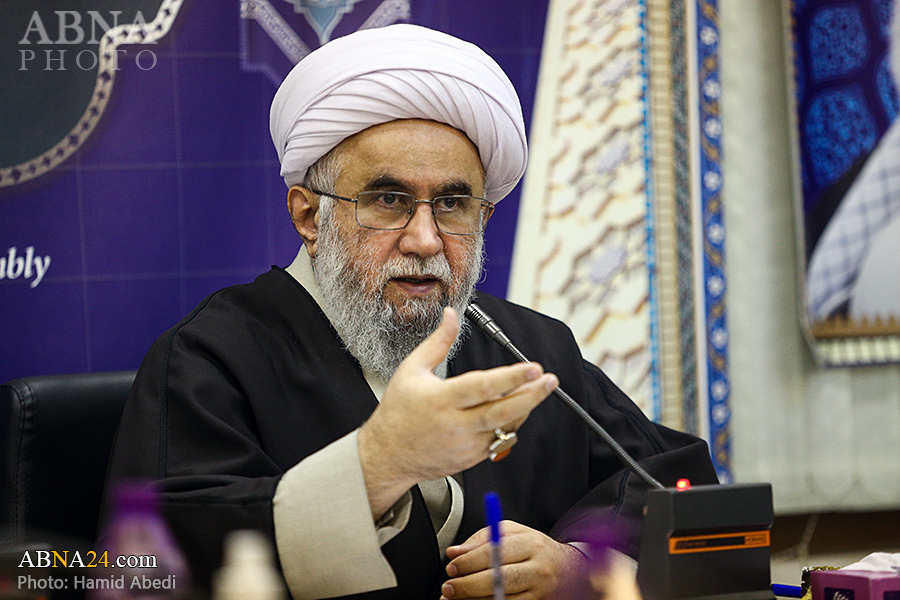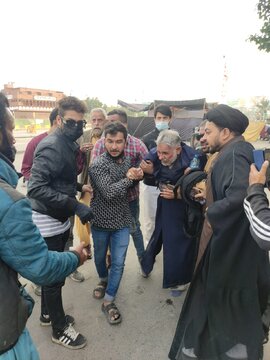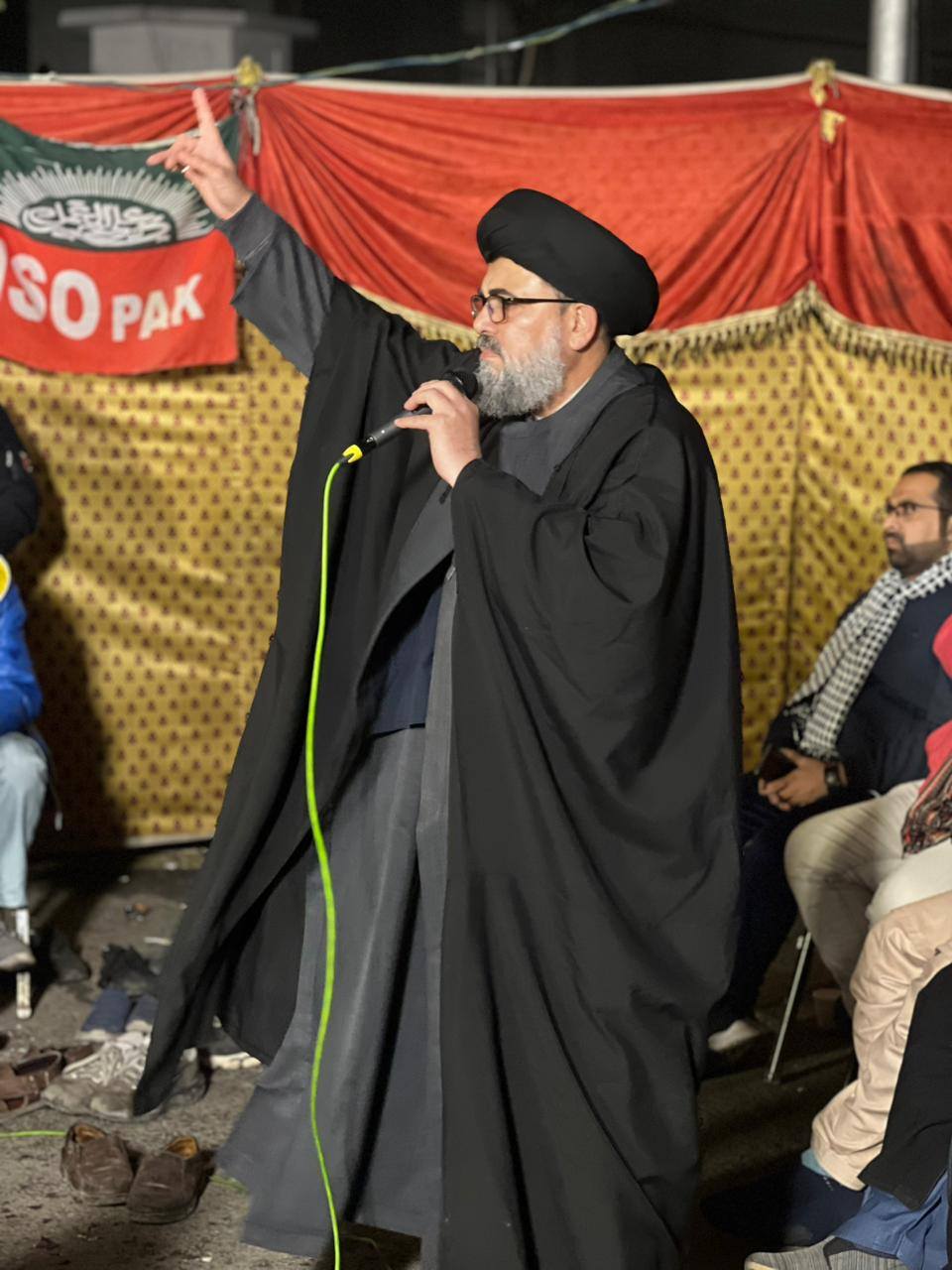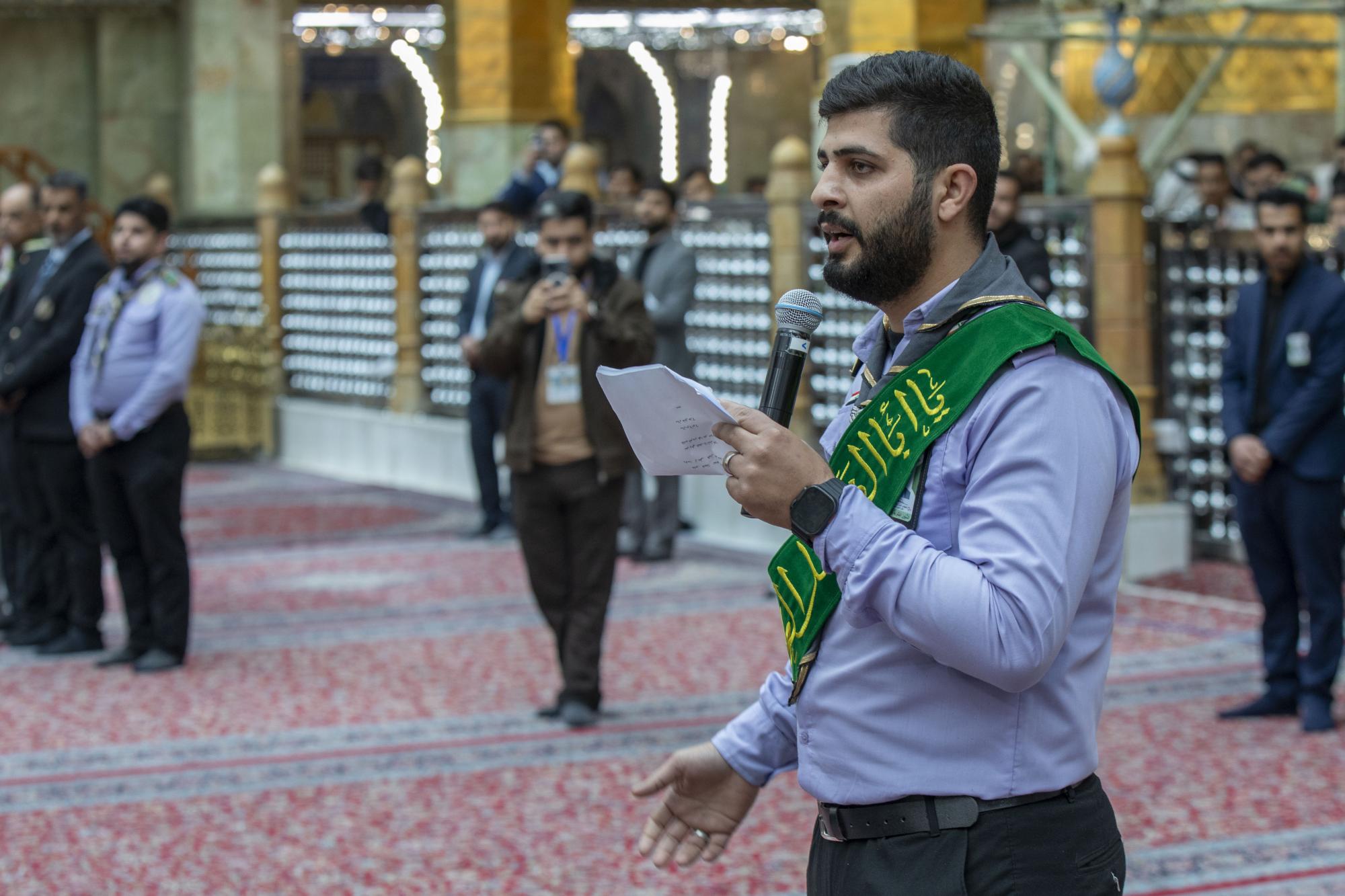AhlulBayt News Agency (ABNA): The administrative and organizational ethics course was held with the speech of Ayatollah Reza Ramazani, Secretary General of the AhlulBayt (a.s.) World Assembly and with the participation of a group of managers and employees of the Assembly.
Noting that management in Islam is intertwined with Islamic teachings, Ayatollah Ramazani stated, “Islamic management software is not Machiavellian. Rather, it is a complete educational and training set. If a person is looking for growth in the organizational environment, his work environment becomes his growth place.”
“Islam considers the source of growth to be internal. While Westerners do not believe in this. On the relationship between man and himself, there are several theories that the correct view is to create links between all the inner capacities of man, including knowledge, love, and power. With a strong connection between these inner human capacities, he finds a precise and deep relationship with himself and adheres to a series of commitments. The fruits of these personal commitments will also be extended to administrative and community groups,” Ayatollah Ramazani stated.
Referring to the management weakness in the organizations, the Secretary General of the AhlulBayt (a.s.) World Assembly stated, “Some say that they cannot cooperate or communicate with a certain person. This indicates the weakness of that person’s management. People should perform their duties correctly, communicate on time, and act in the work process away from personal and taste differences.”
Ayatollah Ramazani pointed out some administrative and organizational principles and emphasized their importance, including the principle of legality, coordination, compliance with limits and boundaries, the priority of group interests over personal interests, respect for thoughts, the principle of justice, decentralization, the principle of authority, and the principle of knowledge.
In explaining the principle of justice, Ayatollah Ramazani stated, “The principle of justice is not exclusive to a specific religion, nation, and person, but is universal and has many social and individual manifestations. Even in the face of the enemy, Islam forbids aggression and insists on fairness and justice. In surah Al-Baqarah, verse 190, God Almighty says: “وَقَاتِلُوا فِي سَبِيلِ اللَّهِ الَّذِينَ يُقَاتِلُونَكُمْ وَلَا تَعْتَدُوا ۚ إِنَّ اللَّهَ لَا يُحِبُّ الْمُعْتَدِينَ” (Fight in the way of Allah those who fight you, but do not transgress. Indeed Allah does not like transgressors.)”
“Paying attention to moral issues and the principle of trust in God is the factor of human growth in any situation. Sometimes we face problems that we find impossible to get rid of. But the principle of trust in God gives us the power to get out of crises and difficult situations. Observing the principle of trust in God in difficult situations is always visible in the lives of God’s prophets. When Prophet Muses (p.b.u.h) reached the sea while Pharaoh’s army was behind him, he said: “إِنَّ مَعِيَ رَبِّي سَيَهْدِينِ” (Indeed my Lord is with me. He will guide me) (Holy Quran, Surah: Ash-Shu'ara, Verse: 62). We should consider God as our lawyer in the literal sense of the word, so that we can be a clear example of the verse “حَسْبُنَا اللَّهُ وَنِعْمَ الْوَكِيلُ” (Allah is sufficient for us, and He is an excellent trustee) (Holy Quran, Surah: Al Imran, Verse: 173),” he said.
Considering the principle of knowledge as essential, Ayatollah Ramazani said, “If people do not have the necessary knowledge and expertise to work and do not know their duties, they will not succeed in practice. Managers should familiarize all staff members with their duties. But more important than familiarity with jobs is the expertise of staff members. If someone without the necessary expertise is assigned to work in an organization, that organization will definitely face many crises.”
“Insight and awareness are essential for running an organization. Ignorance and negligence of a staff member harms himself and the whole organization. Sometimes the lack of understanding and knowledge of the environment of a certain organization or other organizations will lead to a wrong judgment. Some uninformed people accuse organizations active in the international arena of lack of influence and effective activity. They make these accusations without sufficient information. In this way, with their wrong judgments, people cause disappointment in others,” he said.
“Awareness causes revolution and transformation, creates huge changes, and saves man from Shirk (polytheism) and leads him to Tawheed (monotheism.) The Quran also considers its duty to inform and educate man: “قَدْ جَاءَكُمْ بَصَائِرُ مِنْ رَبِّكُمْ ۖ فَمَنْ أَبْصَرَ فَلِنَفْسِهِ ۖ وَمَنْ عَمِيَ فَعَلَيْهَا” (Certainly insights have come to you from your Lord. So whoever sees, it is to the benefit of his own soul, and whoever remains blind, it is to its detriment) (Holy Quran, Surah: Al-An'am, Verse: 104). Awareness always leads to the growth of the person and the organization and plays a crucial role in building the organization,” continued the Secretary General of the AhlulBayt (a.s.) World Assembly.
Emphasizing the necessity of on-the-job training, in explaining the meaning of administrative and organizational ethics, Ayatollah Ramazani said, “Administrative and organizational ethics means directing and organizing the behavior of each person to realize the interests of the organization. Everyone in his or her position, even if he or she is an expert, needs training and knowledge. Some consider aging as an excuse not to make beneficial changes in themselves. This leads to stagnation and lack of progress.”
Emphasizing the importance of “Sharh Sadr” as one of the important characteristics of the manager of an organization, he added, “Sharh al-Sadr (expansion of the chest) means the expansion of the soul and the spiritual education that gives peace to a person. Having the Sharh al-Sadr prevents us from getting angry over trivial issues. In the face of changes in an organization, some show meaningless resistance without knowledge, which causes trouble for all members. The Sharh al-Sadr for the manager of an organization is the management tool, and it is considered the most important management tool.”
“Raising the tolerance threshold is not only for the workplace but should also be observed in relation to family, spouse, and children. We should let them express their opinion and listen to them. Neglecting this issue leads to serious discords in families,” continued the Secretary General of the AhlulBayt (a.s.) World Assembly.
“Some rely on their long management background or knowledge and do not pay attention to the opinions of others, accusing others of ignorance and lack of understanding. This conduct is dangerous. While we can learn valuable notes from other people. Sharh al-Sadr can restrain unbridled knowledge and unruly awareness of man, and remove this spiritual veil,” Ayatollah Ramazani stated.
“Sometimes I miss people like Ayatollah Bahaadini and Ayatollah Bahjat, who used to make us cry just by reciting Surah al-Hamd and al-Juma'ah when we participated in their congregational prayers. I miss people like Ayatollah Ahmadi Mianaji and Ayatollah Meshkini. We need such teachers who can influence our soul, and teach us Sharh al-Sadr,” he said at the end of his speech, referring to the biography of ulama and dignitaries of Islam.
**************
End/ 345





